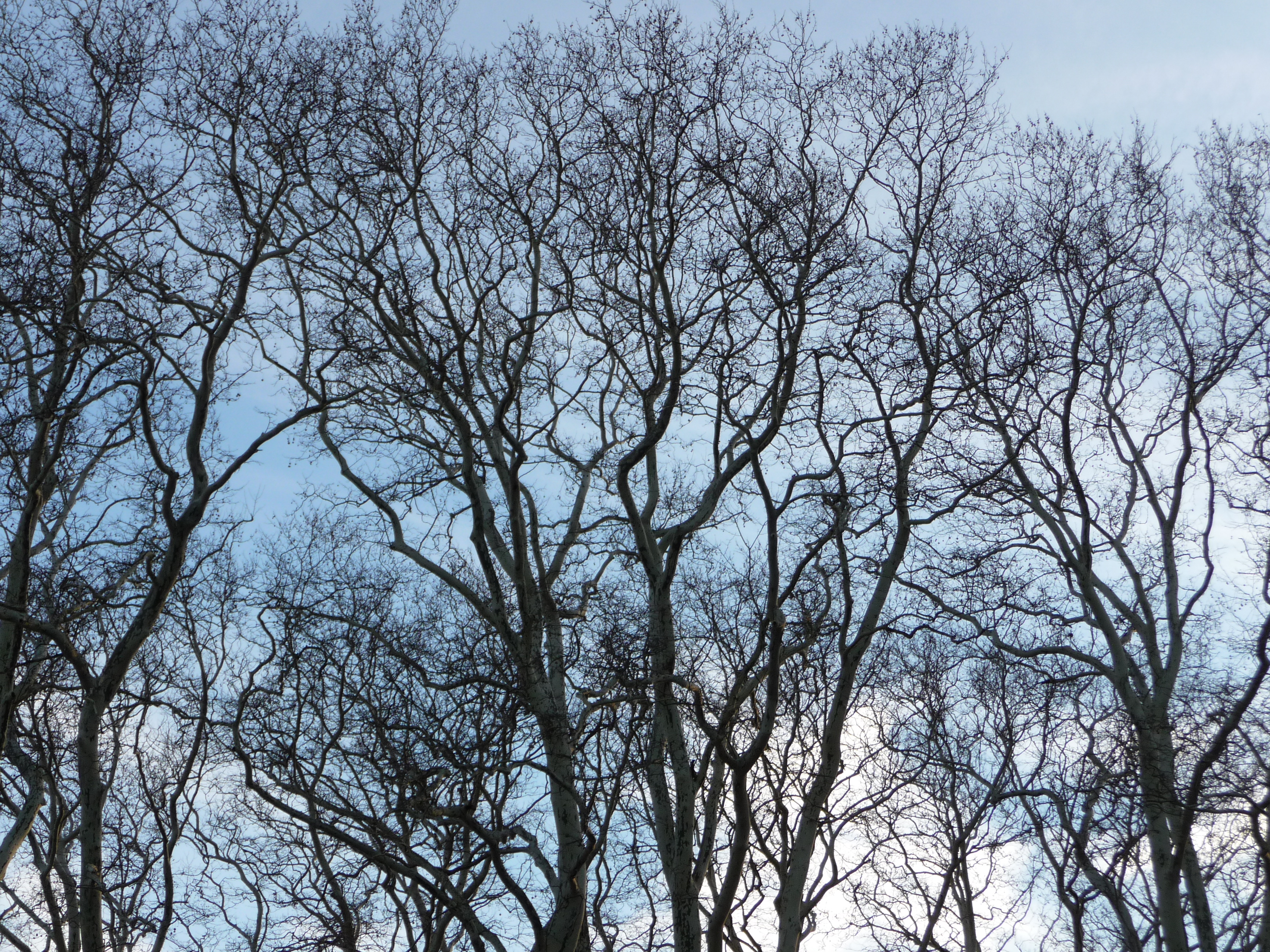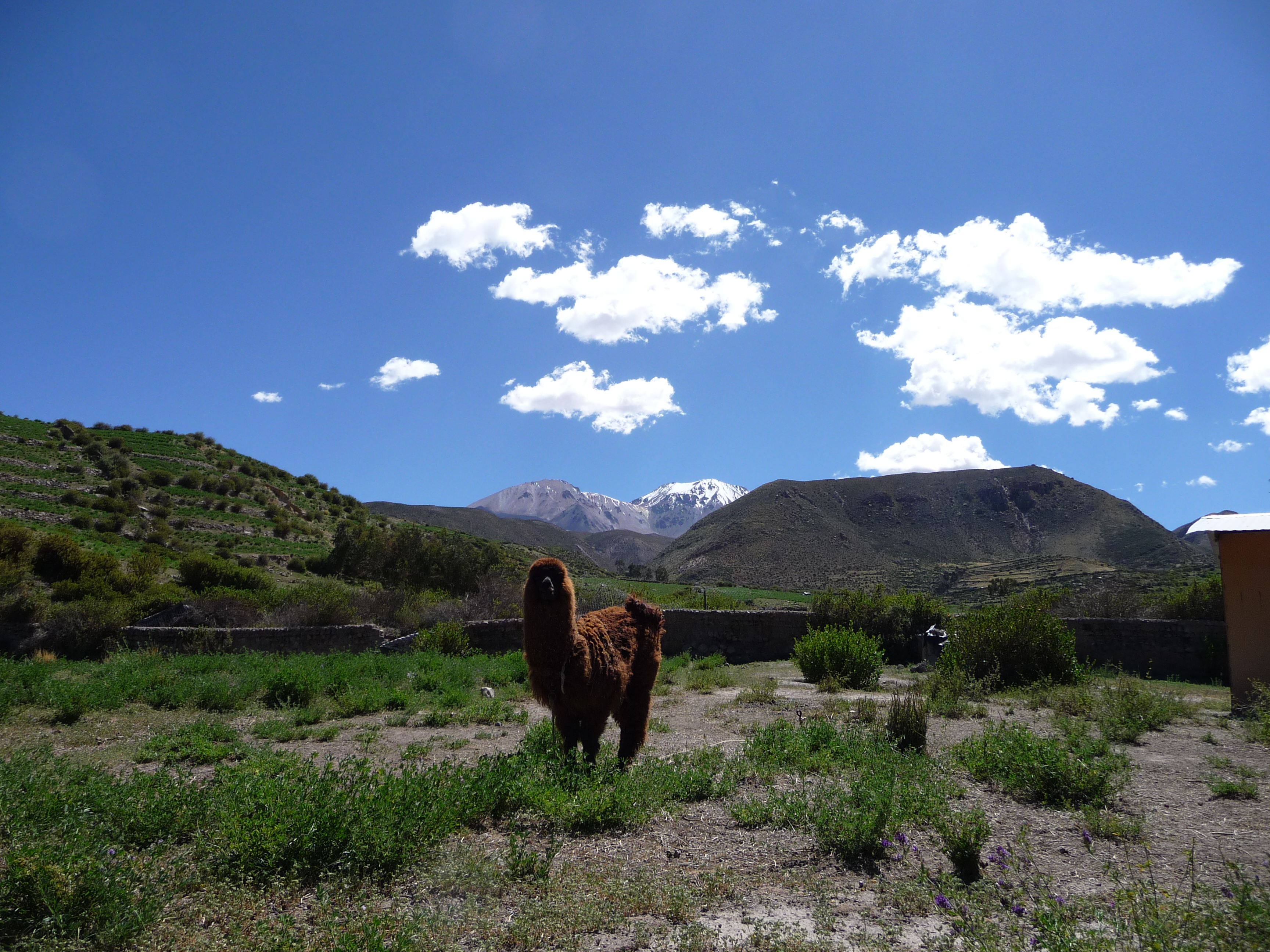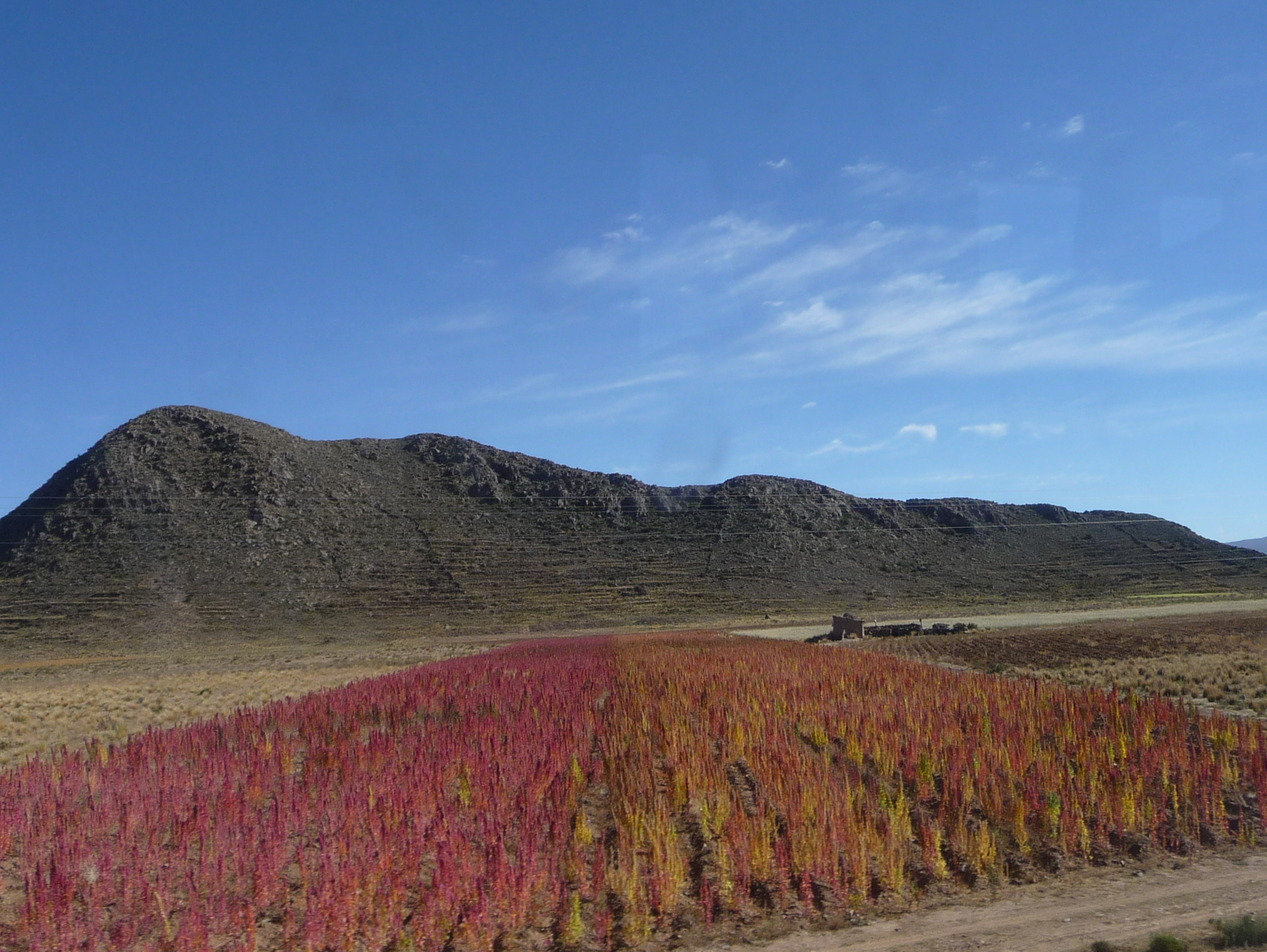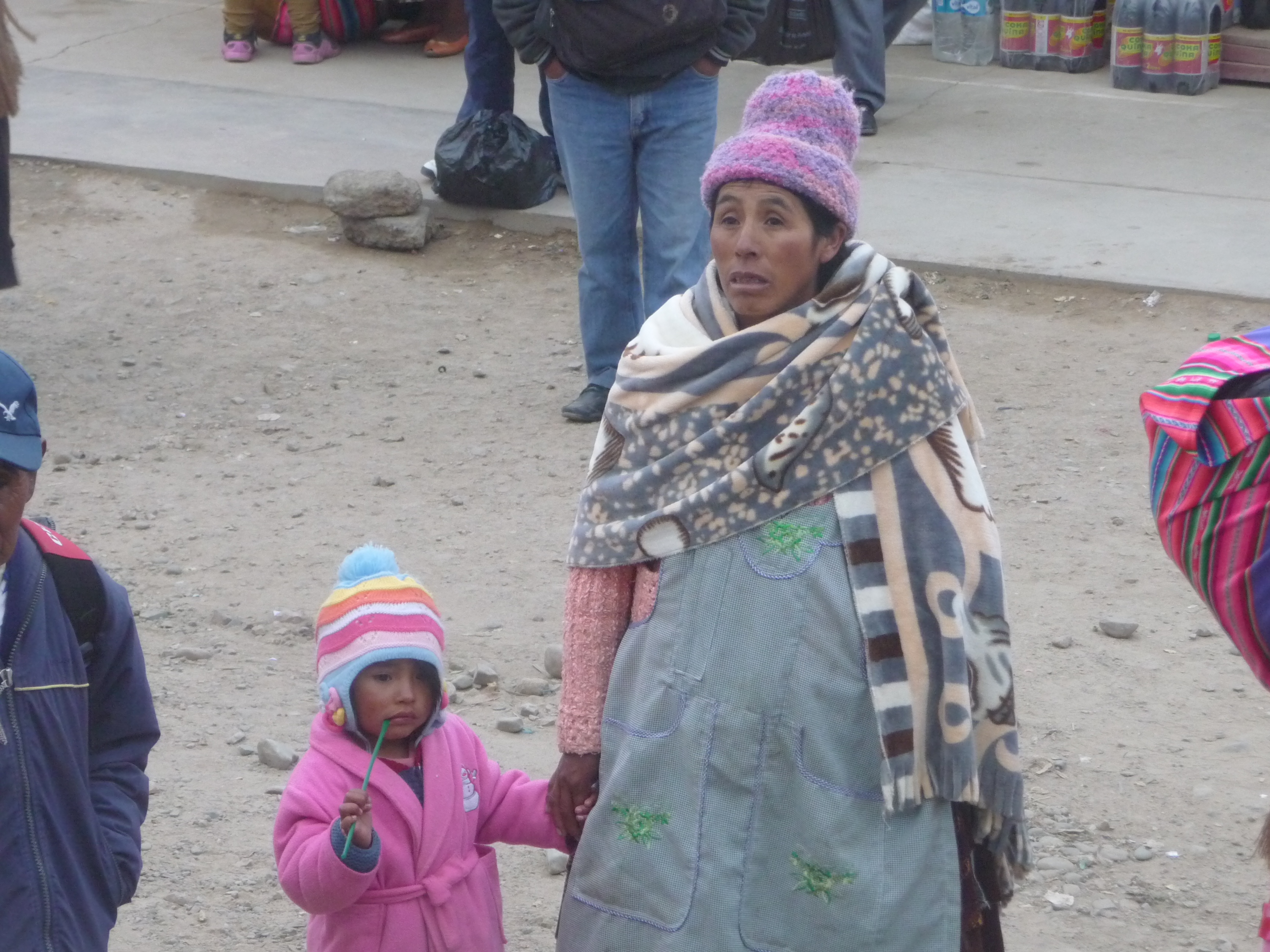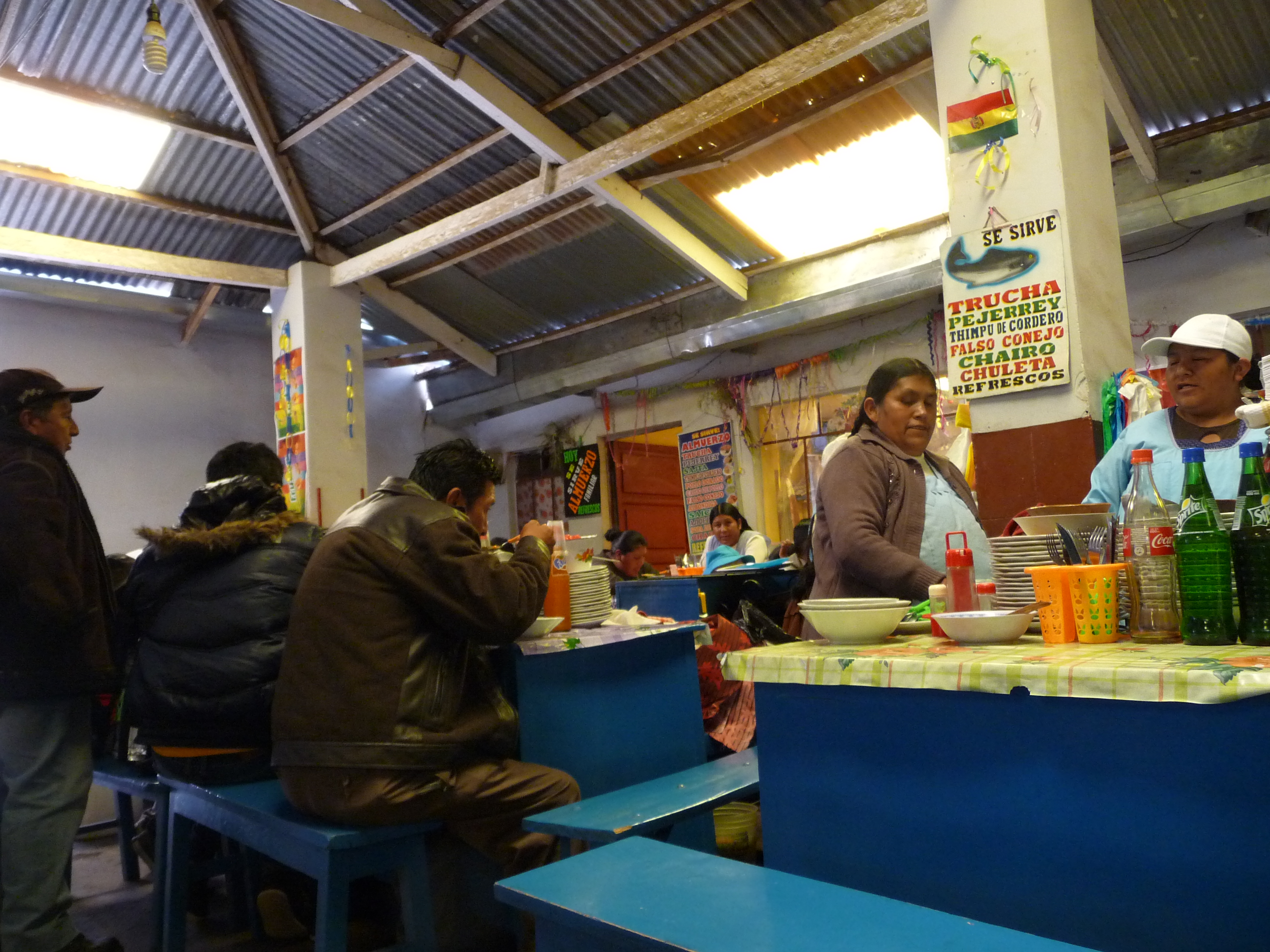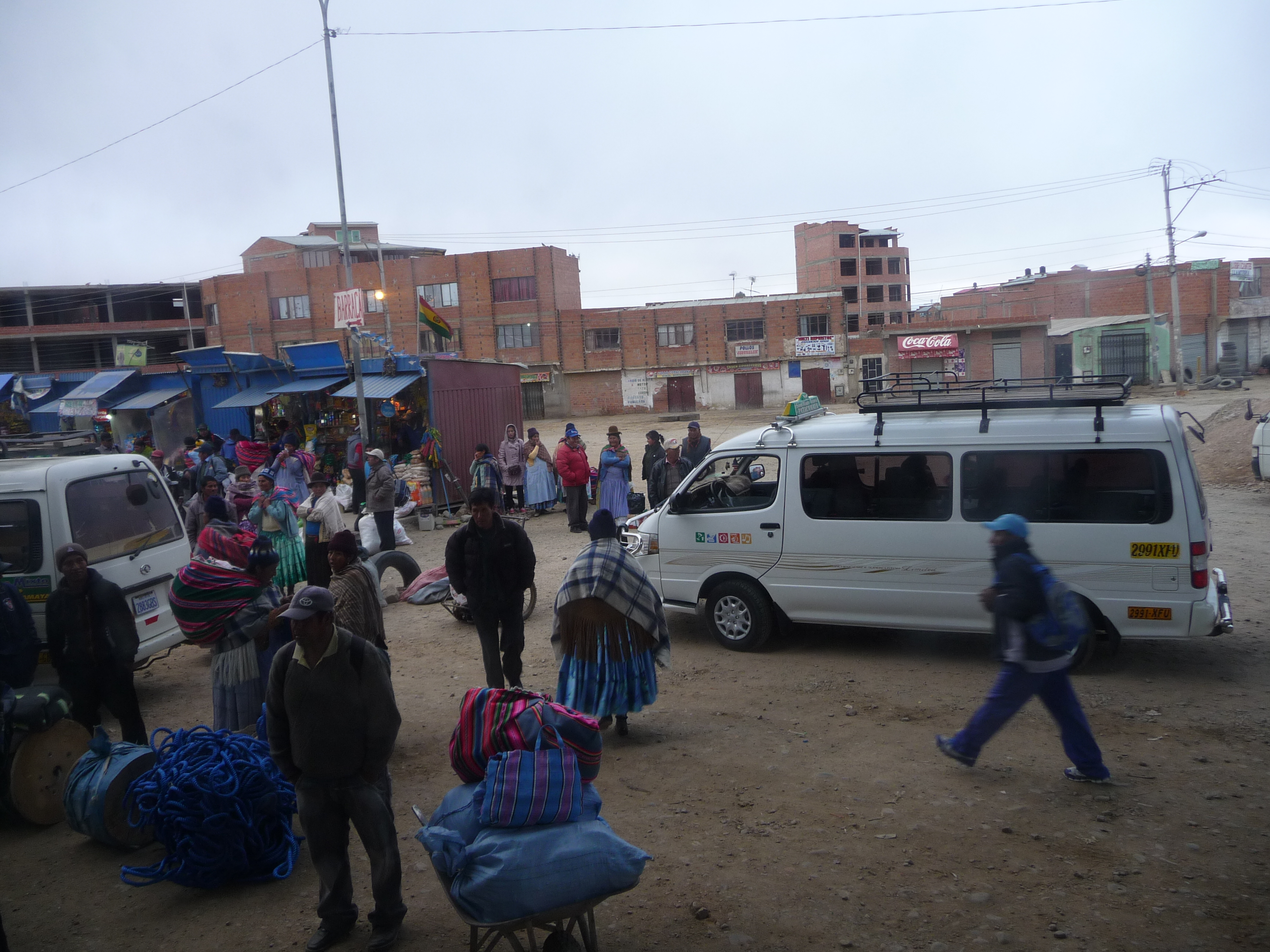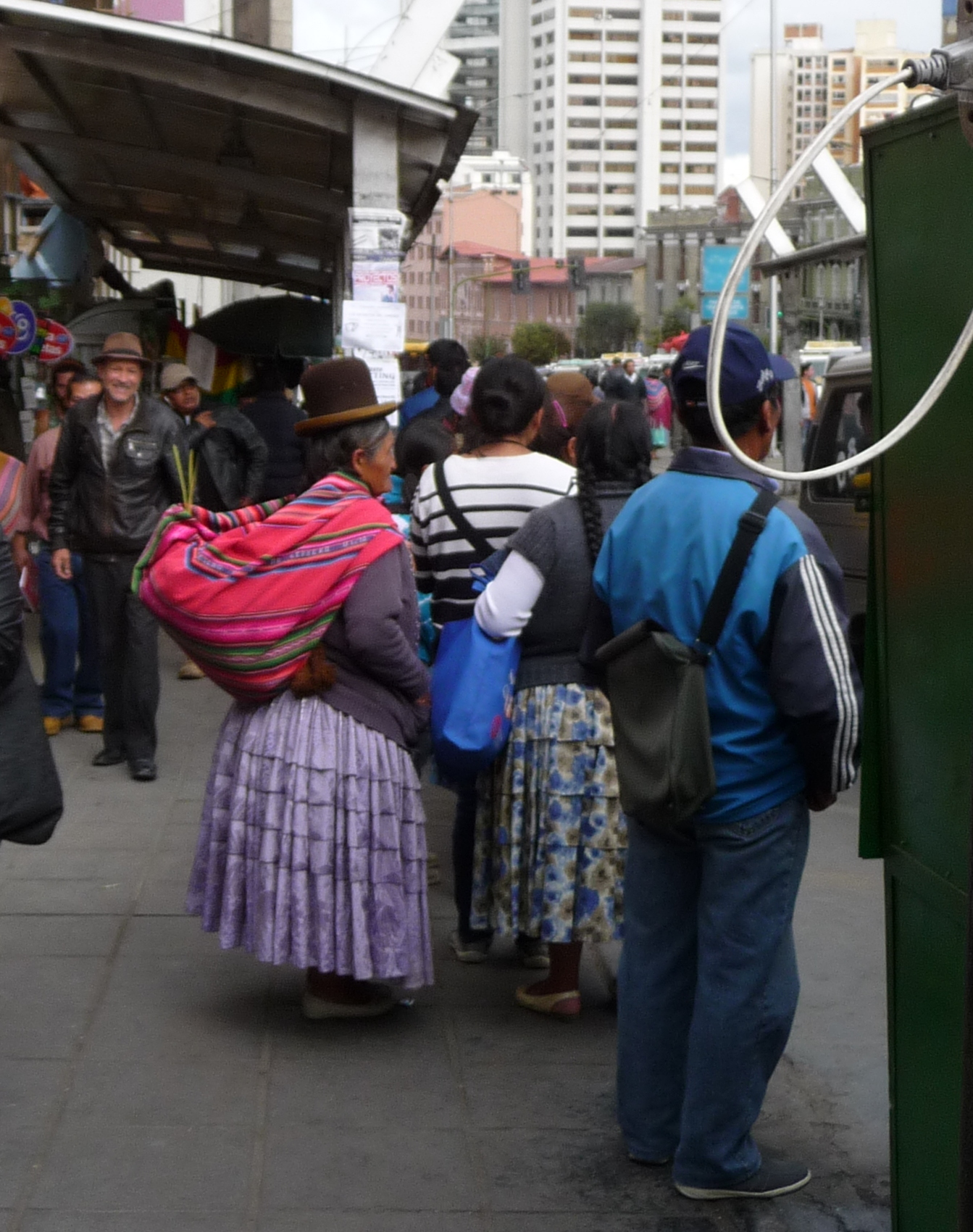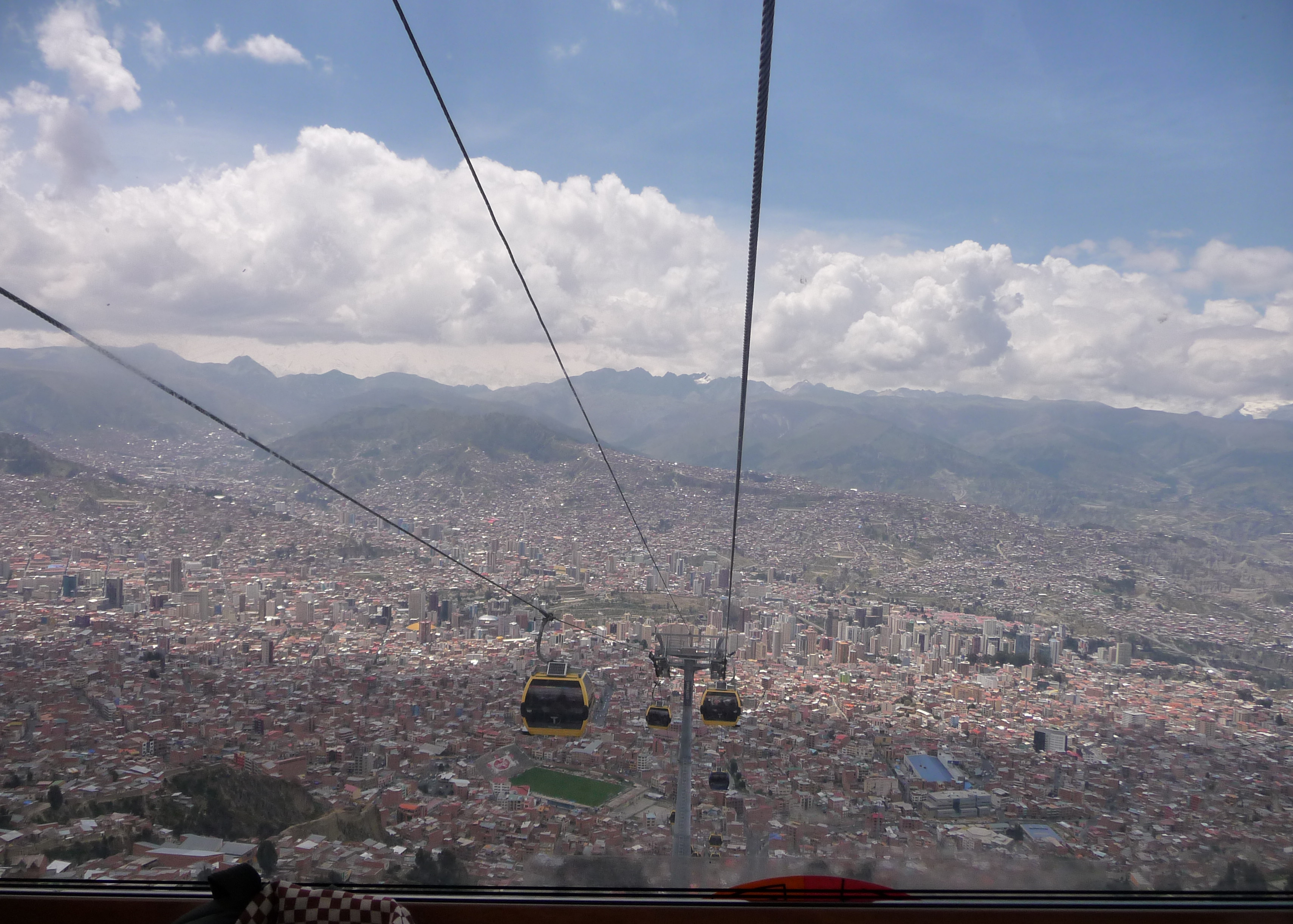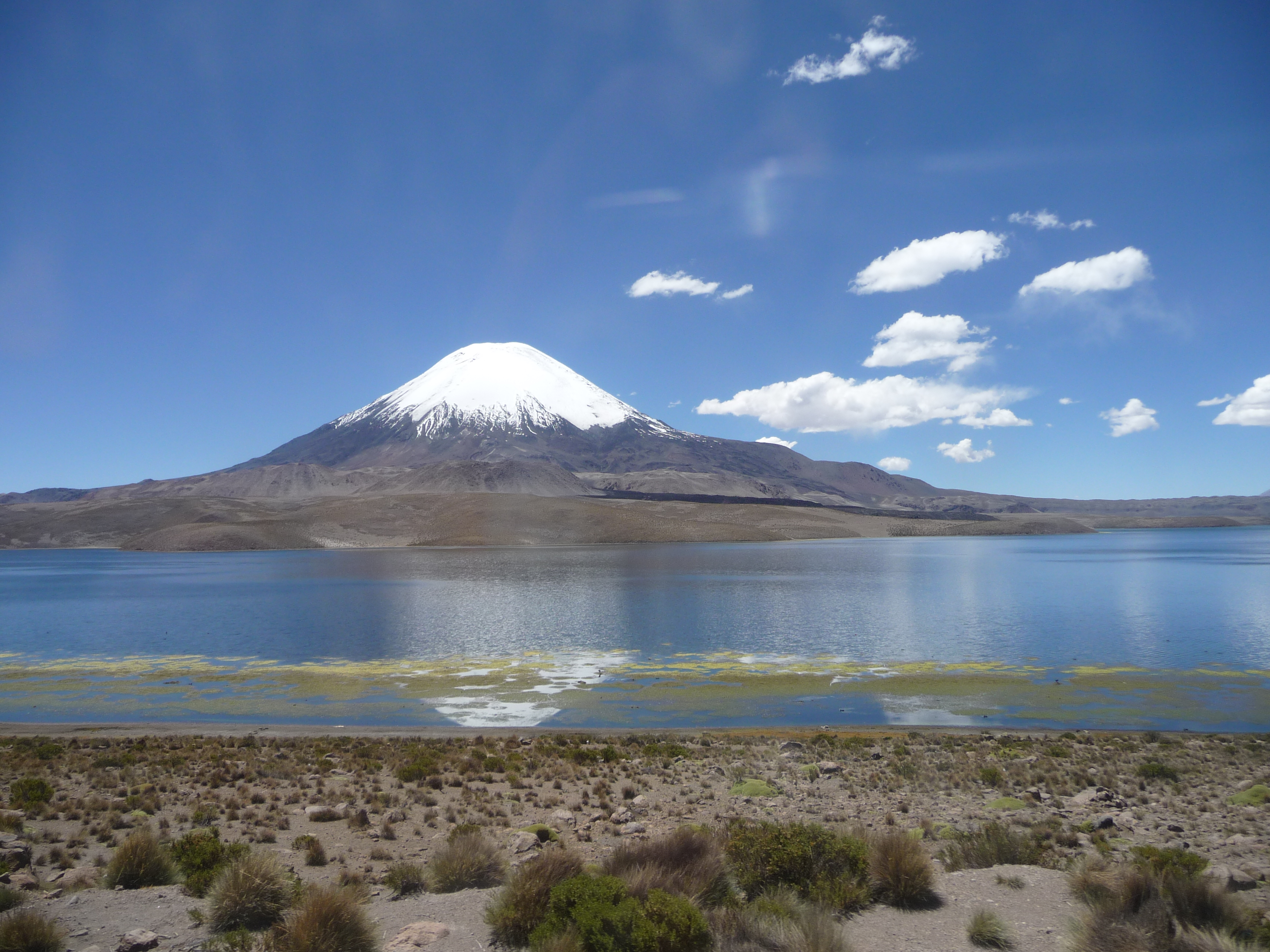
After a few more hours, we drove through the Parque Nacional Lauca. The landscape displayed arid plains except for the shoreline of Lago Chungura and the looming volcanoes, where one spewed steam. The Bolivian- Chilean border was near. When the bus stopped, we were instructed to take our bags, including those stowed in cargo, into a low, plain building. A few men and women with brown skin and black hair stood around casually in uniforms while one of them directed us to line up for customs. A dog, guided by an officer wearing an official emblem on her shirt, sniffed our bags and parcels with indifference. We showed our passports to a woman seated behind a glass partition while our belongings were placed on a conveyor belt to be scanned.
Standing near me was the only other tourist easily identified by his pale skin. I learned he came from Spain and spoke no English. His name was Jose. He was planning to ride his bicycle from Putre across the national parks to the salt flats near Uyuni, back in Bolivia.
We all re-boarded the bus. After traveling only a moment or two we repeated the customs procedure on the Chilean side. I assumed we would now be on our way, but after a few hundred meters we were asked to descend for another inspection.
An hour before, a traditionally attired woman sitting across the aisle expressed concern. She was leaving Bolivia with money, possibly exceeding the legal limit. As if practicing her anticipated appeal she explained to all within earshot her business affairs. She dug deep into her folds of fabric and flesh to extract a small but bulging pouch lodged securely near her heart. Her gesture seemed intended to insure us that her tale was true.
The border police again inspected our possessions and passports, all without incident.
Shortly after, I heard the driver announce Putre. I was glad to arrive. I was tired from the long bus ride and the early departure in La Paz. I envisioned the small town we would soon be driving into, finding accommodations, and sipping a cool drink at a cafe.
The bus stopped, Jose and I descended. I looked around, but saw no town. There was only the long stretch of highway we had been traveling on which extended for miles in both directions. Two young men were seated on the other side of the road. They huddled into a small patch of shade cast from a lone sign marking Putre 5 kms. “It’s mostly downhill,” they said.
I was stunned. My ticket said Putre. How could we be dropped off on the road 5kms away? Were there any taxis? The barren road gave me an answer. At least it was during the day.
Jose offered to walk with me, saying it would do his upset stomach some good. He set up his bicycle with its trailing caddy. I thanked him then grumbled to myself at the unexpected and unwelcome walk ahead. We veered off onto a side road which climbed up at a fairly steep incline. “This can’t be right. Those guys said it was downhill.” I said.” Mostly downhill.” was Jose’s reply. I took out my large brimmed hat to keep the oppressive sun’s heat at bay and trudged slowly toward the destination over 3 miles away.
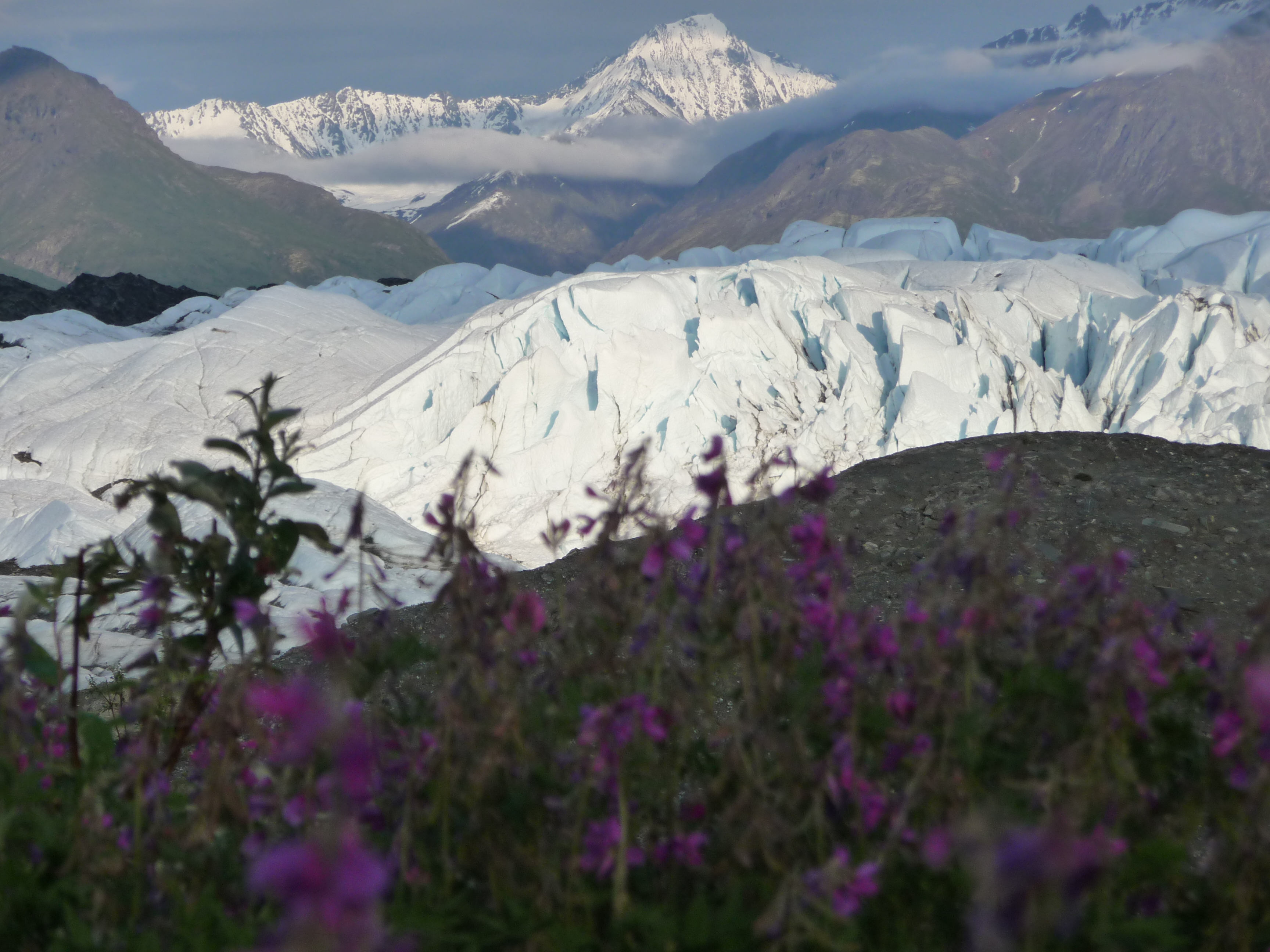 It is easy for me to forget that today is a day to honor over a million men and women who lost their lives in our wars, who saw hell on earth, and then died. But there are too many for whom forgetting is a luxury they do not own.
It is easy for me to forget that today is a day to honor over a million men and women who lost their lives in our wars, who saw hell on earth, and then died. But there are too many for whom forgetting is a luxury they do not own.